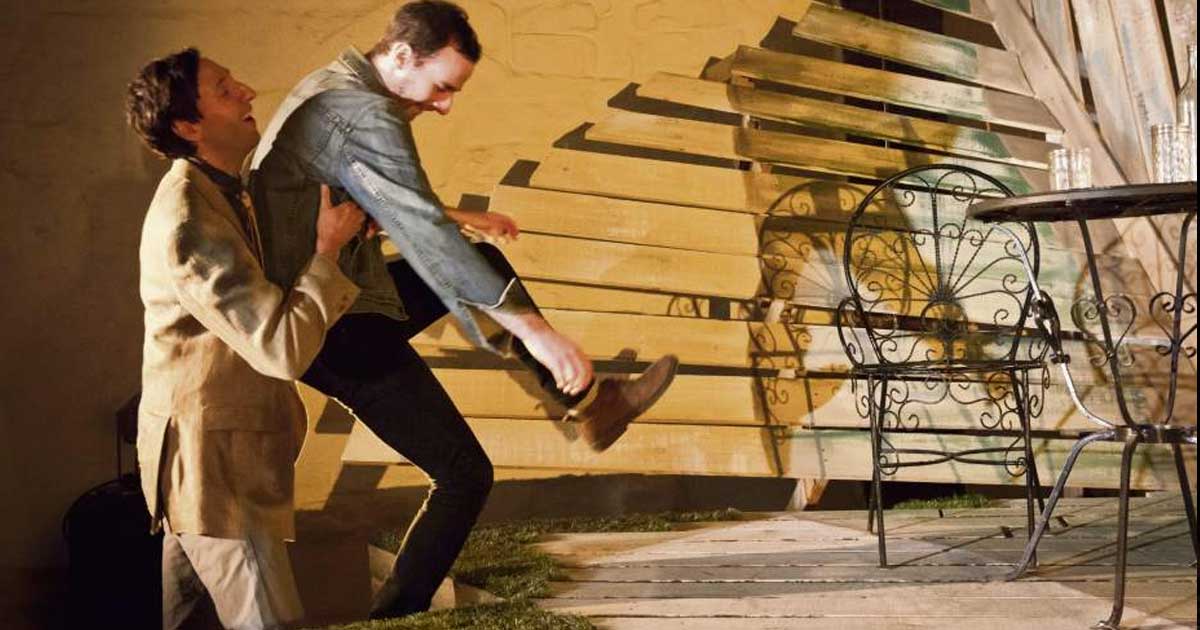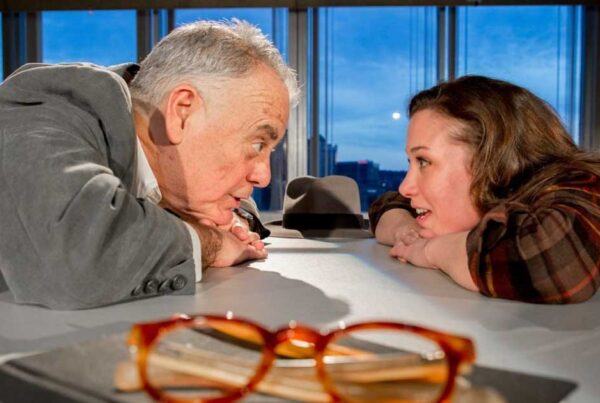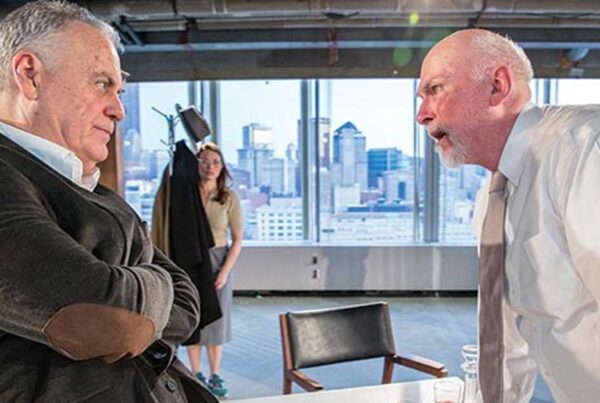
Tribune-Review – According to playwright Paul Kruse, individual chickens are not nearly as successful on their own as they are when they are part of a flock.
After seeing Quantum Theatre’s production of his play “Chickens in the Yard,” it seems the same may be said for people and theater makers.
Set in a backyard of a Pittsburgh neighborhood similar to Lawrenceville, Kruse’s play concerns itself with Joyce, her adult son, John, and his partner, Tom, who live together and share their backyard with a flock of chickens until a visit from Tom’s sister, Abby, and the introduction of a new chicken alters the dynamic.
The play’s cast of four — Laurie Klatscher, Alec Silberblatt, Joseph McGranaghan and Siovhan Christensen — alternate roles as humans and chickens as the action and interactions unfold. Chickens search for food and their place in the flock while the humans order take-out and wrestle with a series of life-changing events.
All this is proficiently executed.
But sometimes it feels like the chicken are more decorative than constructive — adding unnecessary metaphors to a straightforward drama of people searching for home and family.
Quantum Theatre artistic director Karla Boos found the play while looking for new artistic voices. “Chickens in the Yard,” created by Hatch Arts Collective, spoke to her. Hatch Arts Collective debuted the play in 2013 at Fe Gallery in Lawrenceville.
She chose it as the inaugural production of Quantum’s Gerri Kay New Voices Program, which plays through Dec. 6 at Javo Studios in Lawrenceville.
Kruse, director Adil Mansoor and producer Nicole Shero are members of Hatch, so this new Quantum production is more a dialogue between the two: Quantum and its audience get to experience new voices and ideas; Hatch benefits from Quantum’s resources and know-how.
Scenic designer Britton Mauk fills the back wall of the huge, heated, red brick enclosed space with a spare, but effective, multilevel backyard bordered by a wooden fence.
Musicians Morgan Erina and Ginger Brooks Takahashi and sound designer David JM Bielewicz provide subtle, almost imperceptible, melodic interludes.
The production is short — 70 minutes, no intermission — but leisurely. Director Mansoor allows human events to occur slowly but deliberately.
Klatscher is wonderfully sympathetic as the laid-back, nurturing Joyce. Silberblatt and McGranaghan nicely display vulnerability and uncertainty as they explore pivotal changes in their lives. Christensen brings a sharper, more vigorous dynamic to her journey as the 17-year-old Abby.
Those scenes are punctuated by the chickens pecking for food, confronting each other and eventually producing a much anticipated egg in interludes that provide metaphoric support.
The cast does a masterful job of transforming from people to chickens and back again using nothing but posture and gestures to indicate the changes.
They’re less successful in creating individuality and clarity when called upon to play additional humans, such as Joyce’s now-dead husband or Tom and Abby’s mother, who are seen in flashbacks.
But part of the process of doing new and different work is that not all risks are rewarded with success.
This solidly supported Quantum production allows audiences and artists to accept that challenge under the best possible circumstances…




